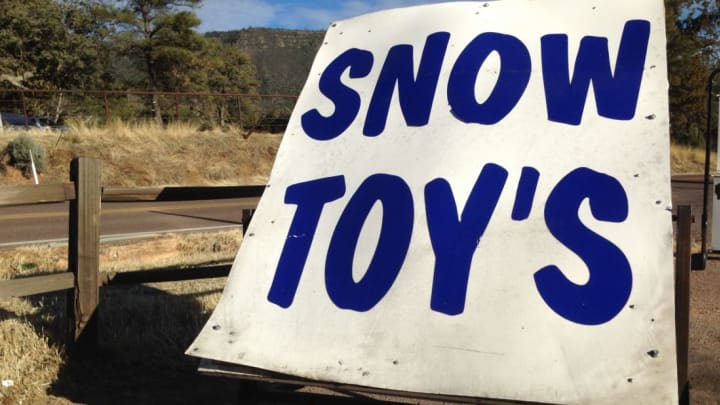In November 2019, retired journalist John Richards announced that he was disbanding the Apostrophe Protection Society, a primarily internet-based organization he founded in 2001 as a resource for writers. Richards’s first reason for the shutdown was simply that, at 96 years old, he wanted to cut back on his commitments—but it was his second reason that alarmed meticulous editors and self-proclaimed grammarians around the world.
“Fewer organizations and individuals are now caring about the correct use of the apostrophe in the English language,” Richards wrote on the site. “The ignorance and laziness present in modern times have won!”
The announcement prompted a small avalanche of articles with headlines like “Have We Murdered the Apostrophe?” (from the BBC) and “Is There a Question Mark Over the Apostrophe’s Future?” (from The New European), many of which pondered different angles of the same sad question: Is the apostrophe actually necessary?
To oversimplify a very complex, centuries-long discussion, the answer is an unsatisfying “It depends.” If you ask someone who thinks written language should be a reflection of spoken language, they might say no—after all, we don’t pronounce apostrophes. “The cat’s meow” sounds exactly like “The cats meow.” And, while we don’t usually say “Period” at the end of our sentences, periods and other punctuation marks are translated through speech; upward inflection indicates a question mark, a brief pause implies a comma, and so on.
Other people, however, argue that even if apostrophes don’t reveal themselves aloud, they’re still important in writing. As Colin Matthews, head of the English department at Churchfields Primary School in Beckenham, England, told the BBC, apostrophes are about “clarity in meaning.”
On one hand, Matthews is entirely correct in suggesting that apostrophes make a sentence clearer. On the other hand, the English language doesn’t exactly have a reputation for prioritizing clarity—and if we can use context clues to differentiate between, say, bat as an animal and bat as a weapon, then it stands to reason that we may not need a written apostrophe to understand that “The bats wing is broken” refers to the wing of the bat (which is, of course, of the animal variety).
Furthermore, Richards’s suggestion that this apostrophe catastrophe is a modern development isn’t totally accurate. As Merriam-Webster points out, we’ve been debating if and how apostrophes should be used for centuries; even William Shakespeare was inconsistent about it.
That said, it’s definitely possible that the ever-expanding digital landscape has unintentionally encouraged a general lack of care for apostrophes—you can’t use them in social media hashtags, for instance, and the fast-paced, often bite-sized nature of online content means that there are many more opportunities for mistakes, and much less time committed to preventing them. But, as many a linguist will tell you, that’s just how language works; it changes to better fit how we use it.
"[The evolution of language is] nothing that we can try to stop, it’s inevitable," New York University linguistics professor Laurel Mackenzie told the BBC.
Since this evolution often happens slowly, you can rest easy knowing that the death of the Apostrophe Protection Society definitely doesn’t mean the death of the apostrophe itself; and, if your tattoo artist forgets to include one in your latest tattoo, you should probably ask them to somehow squeeze it in.
[h/t BBC]
